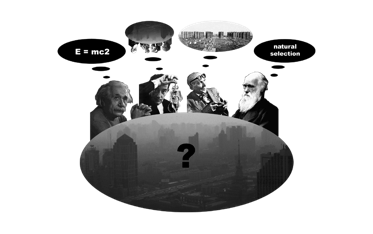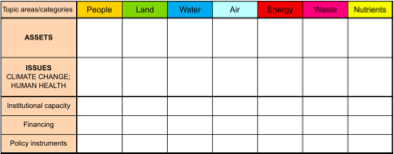
TRAINING
URBEN Group provides interdisciplinary multi-stakeholder trainings on integrated urban planning.
Why is Urban Environment Training needed?
Rapidly transforming cities in developing economies are facing increasingly serious social and environmental challenges. As urban populations are rapidly growing in an era of climate change, the issues of poverty and environment and the need for sustainable solutions have taken on an increased urgency. Cities often cannot address these effectively due to conflicting stakeholder interests. Further, the sustainability discussion on cities involves specialists and stakeholders from a large variety of backgrounds.
URBEN Group has chosen to respond to these issues by developing an approach based on the need to include a wide range of organisations and techniques that work together to enable a whole community to tackle urban issues in order to attain a better understanding about these challenges and to devise solutions which “do not compromise the ability of future generations to meet their own needs.”
Using an innovative process and toolkit, the aim of URBEN Group is to support comprehensive assessment of an urban context and to facilitate multi-stakeholder processes of urban development to help create innovative urban design solutions.

The HOW-TO approach of the training is:
1. How to make a brief and comprehensive assessment of an urban context in terms of social and environmental issues such as minimizing natural resources appropriation and maximizing energy efficiency.
2. How to make a large-scale urban planning project more socially inclusive and sustainable by taking into consideration the particularities of its urban context.
3. How to assess the sustainability and inclusiveness of urban planning projects.
The process is assisted through the employment of various tools developed by URBEN Group, including URBEN CONTEXT ASSESSMENT and URBEN DESIGN TOOLKIT.
URBEN Group targets actors engaged in urban development at the scale at which cities are actually being built.
URBEN Group aims to provide actors with information on the linkages between crucial environmental and social issues in different contexts and “green” building strategies and technologies in the building sector, and enhance awareness.
URBEN Group aims to provide stakeholders with tools that will facilitate the development of more natural resources and energy efficient as well as socially inclusive urban design models.
In this process, actors and stakeholders are to be familiarized with the challenges of a transdisciplinary discussion between actors and stakeholders engaged in the design, decision-making, implementation and construction of urban development.
The OBJECTIVES of URBEN training are:
1. To provide participants with information on the interlinkages between crucial environmental and social issues in different contexts and sustainable building strategies and technologies in the building sector, and enhance participants’ awareness.
2. To provide participants with tools that will facilitate the development of more natural resources and energy efficient, and socially inclusive innovative urban design models.
3. To familiarize participants with the challenges of a trans-disciplinary discussion between actors engaged in the design, decision-making, implementation and construction of large-scale urban design projects. The target group are local inhabitants, developers, planners, academics, NGOs and law makers. Participants benefit from the multiple backgrounds and experiences of the various types of actors participating in the training session.

The training is a three-step process consisting of URBEN CONTEXT ASSESSMENT, URBEN DESIGN TOOLKIT, and a ROLE PLAY GAME, and requires 1-2 days depending on whether case study preparation can be done in advance. Trainings are conducted using a specific urban case study as a vehicle for discussion.
As OUTCOME, at the end of the training session, participants are expected to have gained a better understanding of:
1. interlinkages between crucial environmental and social issues in different contexts and “green” building strategies and technologies in the building sector, and an enhanced awareness of urban issues
2. tools and process of making large-scale urban planning projects more socially inclusive, sustainable in terms of natural resources and energy efficient
3. challenges of a trans-disciplinary discussion between actors engaged in the design, decision-making, implementation and construction of large-scale urban planning projects.
ABOUT URBEN TOOLS:
URBEN CONTEXT ASSESSMENT systematically provides a ‘macro’ overview of an existing urban context and highlights key ASSETS and ISSUES.

Quantitative and qualitative data collection on each indicator, expert weighting of each indicator
7 key topic areas (People, Land, Water, Air, Energy, Waste, Nutrients)
6 categories and topic-specific sub-topics, each defined by a set of indicators. Ca. 650 indicators in total
Can be used as comprehensive database for any given city.
URBEN DESIGN TOOLKIT is a design support tool for stakeholder group discussions in order to aid the process of formulating new urban design models.

Compilation of sustainable urban design ‘good practices’, one A4 page each
Case studies documented using a comparative format
Traditional and modern examples
Cover a wide range of urban sustainability design solutions or 'modules'
10-15 examples are chosen for the workshop
